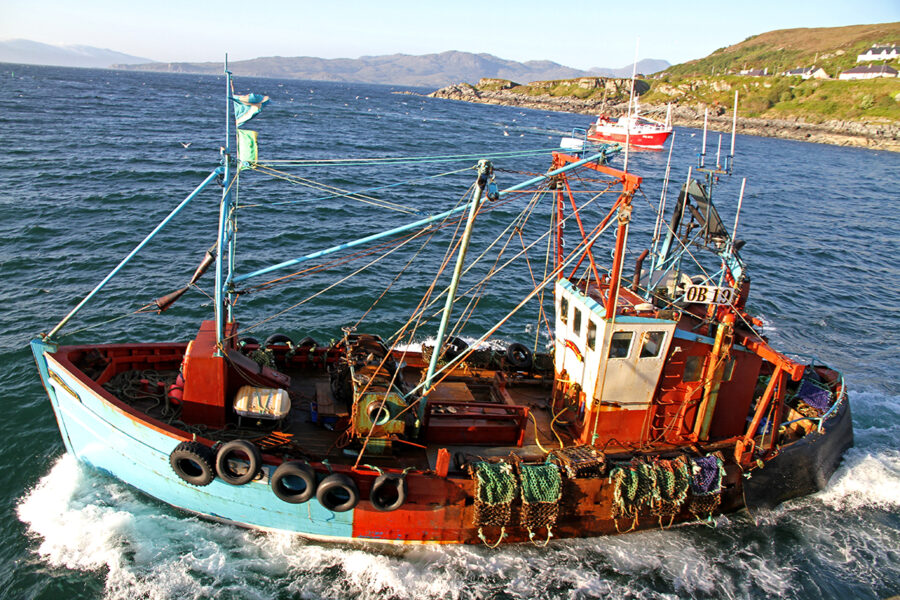Inshore fisheries need higher priority and funding after Brexit.
Fishing should be given special status on inshore grounds as a primary food-producing activity to protect the inshore sector from ever-increasing pressure on grounds from non-fishing interests, reports Tim Oliver.
There is a growing risk of loss of inshore grounds in Scotland as pressure mounts from sources such as environmental groups, who want areas to be closed to protect various natural features.
This is the view of the SFF in a major inshore fisheries policy the Federation has just published, ‘SFF Inshore Fisheries Policy – Brexit and beyond’. It says fishermen are in competition with aquaculture, renewables, MPAs and other activities in an ‘increasingly crowded’ inshore region, out to both six and 12 miles.
Growing pressure for exclusive use of the seabed and closed areas is creating additional burdens on the inshore fleet as it fights against these pressures.
But Brexit offers the hope that current inshore fishing pressure could be moved offshore due to new fishing opportunities, “thereby relieving pressure inshore that could benefit the indigenous fleet,” says the document.
These pressures have also affected the effectiveness of the ‘well-intentioned’ inshore fisheries groups that have been set up in Scotland to manage inshore fisheries in some areas, notably the mainland regions.
“NGOs have increasing influence on the shaping of environmental designations. Lack of resources, volunteer fatigue, geographical extremes and communication difficulties all inhibit sound, proactive, IFG development around the mainland coastal fisheries.
“Furthermore, departure from a bottom-up approach and artificial political efforts to instigate IFGs has caused disharmony and accusations of unfair preferential treatment towards some sectors. It is yet to be seen how the new arrangements will work,” says the SFF.
Finance is another area of concern highlighted by the policy document. There is no support from the banks for investment in the inshore sector. This makes it difficult to modernise boats, which, in turn, makes it difficult to attract crews and impacts on new entrants to the industry.
Share fishermen also have little access to unemployment and sickness benefits and the overall effect of these constraints is to make inshore fishing a ‘financially precarious’ occupation.
It will also be necessary to set up a government fund to replace EU funding when we leave the EU. This should be designed to ‘optimise the benefits, in the first case targeted on the fleet, to ensure it is better equipped to do a professional job of fishing, prioritising this over non-productive projects onshore’.
Looking at what is needed to benefit the Scottish inshore fishery, the SFF document says there should be clearer definition of a ‘coastal stakeholder’ and ‘the views of inshore fishermen, businesses and communities should be considered with more weight than those of opinion holders from outside interests’.
It should be recognised that the inshore industry is ‘an existing primary food provider, supplying quality protein at a low economic and environmental cost’.
There is a need for comprehensive stock assessments to inform effort management. Fishermen should be ‘at the heart of designing workable and meaningful scientific studies’ and the regulations and number of bodies influencing fisheries should be streamlined and simplified.
On funding, it will be essential to replace EU structural funds ‘to enable the inshore industry and its infrastructure to catch-up on historical under- investment’ and to update the fleet to meet safety and 21st century standards.
There is also the potential for Seafood Scotland to be funded to promote locally-caught seafood to be consumed and processed locally.
Photograph courtesy of Derek Hosie.
Read more from Fishing News here.








